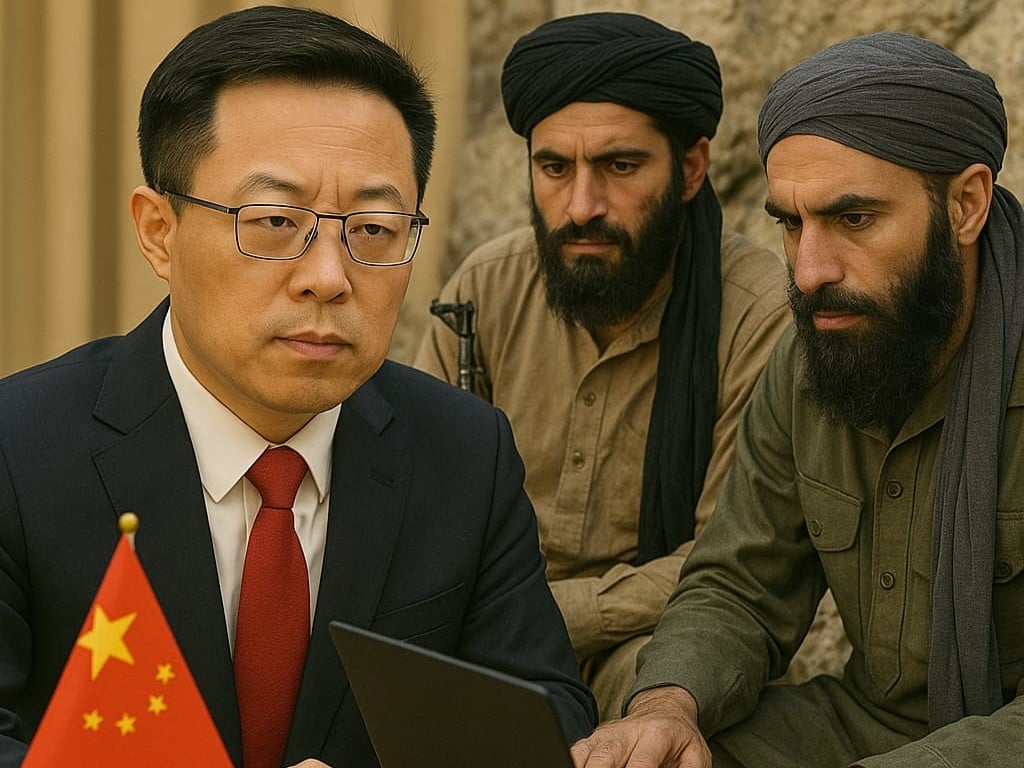In a development that could further destabilize South Asian geopolitics, Indian security agencies have accused China of covertly supplying advanced communication technology to Lashkar-e-Taiba terrorists involved in the April 22 Pahalgam terror attack. The assault, which left 28 people dead—including several tourists—has been described as one of the deadliest targeting Indian civilians since the 2008 Mumbai attacks.
At the heart of the latest revelations is the seizure of a highly sophisticated, Chinese-origin encrypted device, known as ‘Ultra’, from the site of the attack in Jammu and Kashmir. Security officials believe the ‘Ultra’ system enabled the attackers to coordinate undetected by Indian surveillance, using a combination of cellular technology and encrypted radio transmission that bypasses conventional mobile networks.
The device, previously observed in use by Pakistan’s military, suggests a deepening China-Pakistan collaboration in the sphere of asymmetric warfare. Sources within India’s intelligence community have stated that the Ultra system may be part of a broader network, with control stations based across the border enabling real-time, silent communications.
News of the discovery, first reported by The Times of India, has sent shockwaves across the country and ignited outrage on social media. The revelation comes amid growing concerns over China’s diplomatic alignment with Pakistan, especially following Beijing’s defense of Islamabad at the United Nations just days after the Pahalgam incident.
“This is not just about Pakistan anymore,” posted user Tarunesh Sharan on platform X. “China is actively empowering terrorists and the world is silent.” Many online have criticized India’s ongoing economic dependence on China, pointing out the irony of continued trade with a country now allegedly complicit in terror attacks against Indian citizens.
India-China trade has remained robust despite persistent tensions, reaching $136.26 billion in 2022, with a staggering trade deficit of $101.28 billion in China’s favor. “Someone at the top is seriously asleep,” wrote user Aditya Verma, voicing frustration shared by many who see this as a case of economic interests undermining national security.
The Pahalgam attack also appears to have had communal undertones, with reports suggesting victims were selectively targeted. India has linked the incident to the Pakistan-backed Resistance Front, though Pakistan has denied any involvement. U.S. and UN diplomatic channels have been activated to contain the fallout, as both India and Pakistan are nuclear-armed states.
This is not the first time Chinese technology has been linked to militancy in the region. Similar encrypted equipment was reportedly found in Jammu and Kashmir in 2024, and Indian military officials have long accused China of supporting Pakistan militarily by building bunkers, supplying UAVs, and establishing encrypted communications along the Line of Control (LoC).
In response, Defense Minister Rajnath Singh has hinted at possible strikes on cross-border terror camps. However, any move against China would have wider ramifications, as Beijing remains a global superpower with strategic influence far beyond the subcontinent.
The discovery of the ‘Ultra’ device not only highlights potential blind spots in India’s counterterrorism strategy but also exposes the fragility of regional stability in the face of a China-Pakistan alliance that increasingly blurs the line between statecraft and proxy warfare. The coming days may prove decisive as India weighs diplomatic, economic, and potentially military responses to this multi-front security threat.













